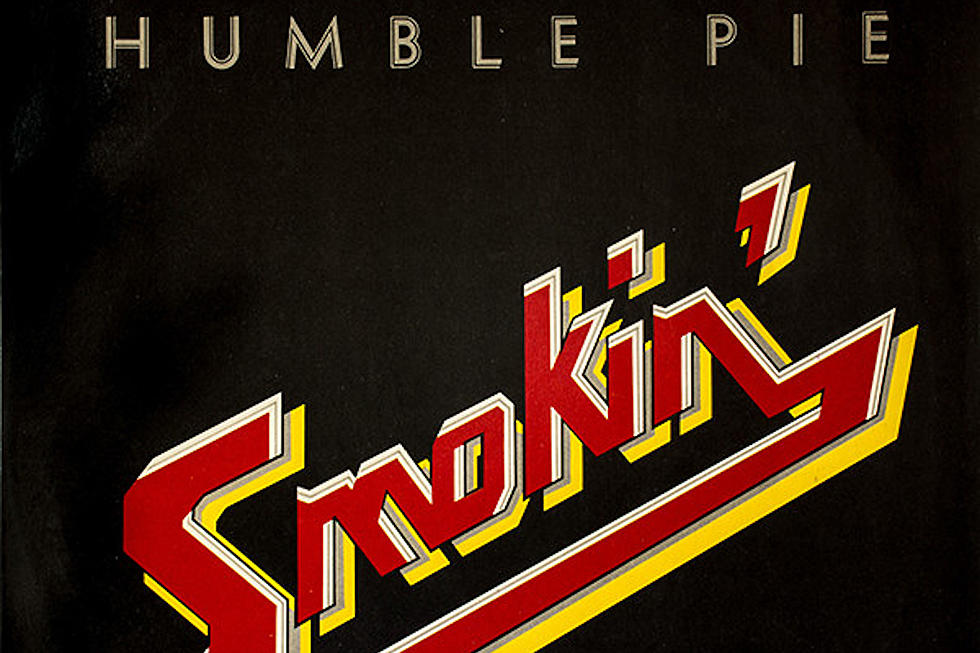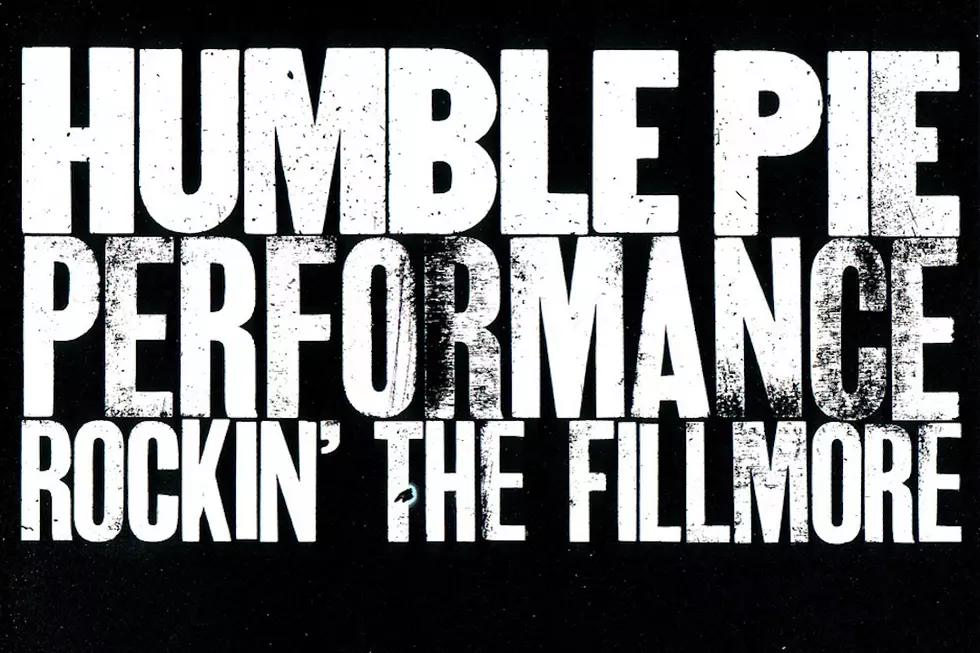Weekend Songs: Humble Pie, ‘Good Booze and Bad Women’
Classic rock is about heavy hooks, power chords and tight harmonies. But it’s also about letting loose and enjoying the good times. And there’s no better time for that than Friday evening, when we pick up our paycheck, punch out of work and enjoy a couple days of much-needed rest and relaxation.
This time we're paying tribute to a band that was pretty much made for weekends: British boogie-rock legends Humble Pie, who rose from the ashes of singer and guitarist Steve Marriott's tenure with the Small Faces to deliver some of the more jukebox-friendly records of the '70s. While the band's commercial and artistic peak came and went fairly quickly -- and Marriott spent most of his career struggling to pay the bills -- its influence can still be felt today, and the group's best records have improved with age.
'Eat It' certainly makes the list of Humble Pie's better LPs. Released in April 1973, it found the band moving to capitalize on the success of the previous year's hit 'Smokin'' record, which catapulted the band into the U.S. Top 10 following the departure of original member Peter Frampton.
Eager to expand the Humble Pie sound and cognizant of the fact that he was commanding the attention of an increased audience, Marriott decided to make 'Eat It' a double album that would touch on all of the band's bases. One side served up new full-band material, given a gospel touch courtesy of their new backing vocalists the Blackberries. Other sides offered covers of R&B songs and collected acoustic Marriott numbers. The final side consisted of live performances, capped off with a 13-minute version of the Holland/Dozier/Holland classic '(I'm A) Road Runner.'
It all added up to a record that managed to reflect the band's growing ambitions without sacrificing the boozy, sweetly shambolic sound that made their music so much fun. Fans responded, sending 'Eat It' into the Billboard Top 20. But Humble Pie's success came at a cost: Marriott's health, already a concern following a spell of "nervous exhaustion" at the tail end of the 'Smokin'' sessions, continued to erode, at least partly due to his growing dependence on drugs and alcohol.
Marriott's personal problems, which would ultimately help lead to Humble Pie's implosion in 1975, lend the 'Eat It' track 'Good Booze and Bad Women' a melancholy undertone; while the song's rave-up arrangement and lines about carousing with roadies make the song seem purely hedonistic, Marriott is careful to let reality creep in at the edges, just to let the listener know he's in on the fleeting nature of the protagonist's good time. What "never fails to work" on the weekends won't keep us from that final verse, where the singer has "to face that Monday morning's work all right / I'm a weekend dreamer / On the way to work / Feel real bad."
It was an experience Marriott knew all too well in the early '70s, and one he'd deal with for years to come. Even though Humble Pie enjoyed something of a resurgence in the early '80s, it didn't last long, and Marriott spent most of the next decade playing club gigs. Sadly, although he and Frampton would reunite in the early '90s for what was supposed to be a Humble Pie reunion, it ended with Marriott's untimely death in a house fire on April 20, 1991.
"He was certainly the most talented person I ever worked with," reflected drummer Jerry Shirley in a 2000 interview. "He was like a brother to me, and I was devastated when he died. He always lived on the edge, and I was always waiting for a phone call to say that he had died, but I never dreamed it would be under those circumstances. He’s never got the credit that he deserves. He should be in the Rock and Roll Hall of Fame because he was the greatest white soul singer that England ever produced. If you caught the likes of Rod Stewart and Paul Rodgers in a private moment and asked them who was the main man, they would say Steve Marriott."
More From Ultimate Classic Rock









